美网友问:为什么韩国人放弃了汉字?日本人为什么要保留汉字呢?
在日常的生活里,也都会经常去观看电视剧。许多的日本电视剧之中,都会看到一些中国汉字的存在,而韩国的电视剧之中,却很少会见到汉字的存在。但是为何,如今的日本保留了1800个汉字,韩国却将其全部舍弃。
其实,韩国自古以来,都是保留中华文化存在的,汉字在韩国一直也都是主流的文字。不过,中国的文字不管是写起来,还是看起来,笔画都太多,相当复杂。韩国在古代时期,虽说文字大多都是汉字,不过许多的民众都是文盲,根本辨识不了文字,只有贵族才能使用。那为什么后来他们要摒弃汉字呢?
在美版知乎论坛话上就有网友发出这样的提问:为什么韩国人放弃了汉字?相反,日本人为什么要保留汉字呢?使用或丢弃汉字的好处或坏处是什么? 让我来看看各国网友的见解吧。
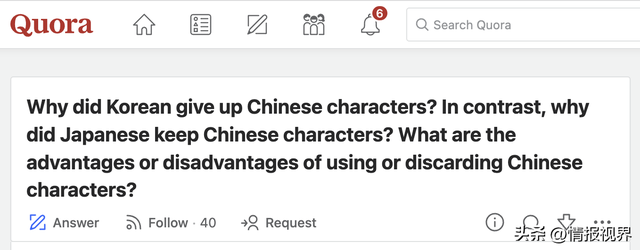
论坛话题:为什么韩国人放弃了汉字?相反,日本人为什么要保留汉字呢?使用或丢弃汉字的好处或坏处是什么?

韩国网友的回答
As far as I know, Koreans gave up Chinese characters for their daily use in order to enhance health literacy and information sharing. Back in the time before Hangul was invented in the 15th century, the literacy of the lower class was not very good, so in case of infectious diseases many people of the minority were not able to read directions for preventive measures provided by the government through written notice boards.
据我所知,韩国人为了提高健康素养和信息共享,放弃了日常使用的汉字。在15世纪发明韩文之前,下层社会的文化水平不高,因此在传染病发生时,很多少数民族无法阅读政府通过书面公告栏提供的预防措施说明。
Knowing this problem, King Sejong led the creation of the new phonetic language system to emphasize development of information sharing, including the enhancement of health literacy. The government of the early Chosun era was very into promoting equality among the people (ex. introducing laws to support those who are physically disabled) which also put emphasis on such educational reform.
认识到这一问题的世宗国王主导了新语音系统的创建,强调了健康素养的提高等信息共享的发展。朝鲜早期的政府非常热衷于促进人民之间的平等(例如,制定法律支持身体残疾的人),也强调这种教育改革。
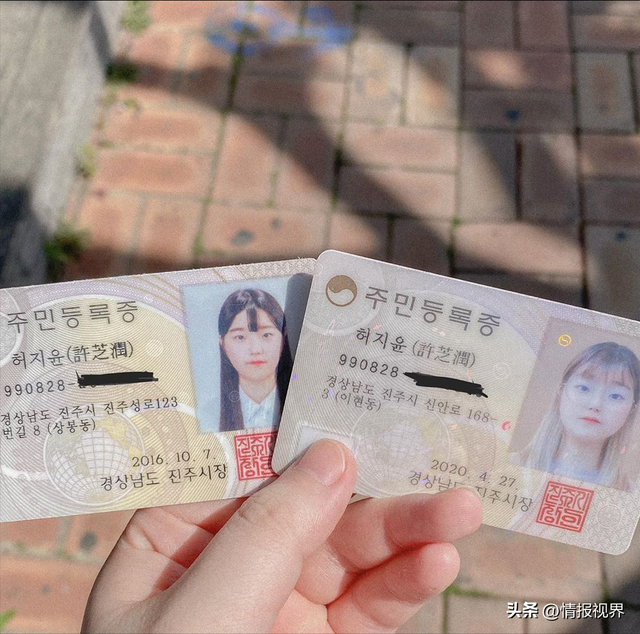
韩国人的身份证
Since then, both Hangul and the Chinese characters were taught to the general public. (except during the Japanese colonialization) Today, young children begin learning basic Chinese characters along with Hangul from the age of 8~10, and many college students find it mandatory to pass a Chinese characters exam (of about 3000 characters) in order to get a job. So although Hangul is the official written language, many Korean people are required to study Chinese characters throughout their lives.
从那时起,韩文和汉字都被教授给了普通大众。(日本帝国主义强占时期除外)现在,孩子们从8~10岁开始学习汉字和韩文,许多大学生发现为了找工作必须通过汉字考试(约3000字)。因此,虽然韩文是官方书面语言,但许多韩国人被要求终生学习汉字。
As for the Japanese case, I cannot answer due to lack of knowledge.
至于日本的情况,我不了解,也无法回答。

日本网友的回答
South Korea still uses Chinese characters. As to why the Japanese language has kept Chinese characters — it would take nearly a book to answer that. However, the short answer is that without Kanji, written Japanese would become somewhat ambiguous, i.e., would lose a lot of clarity of meaning.
韩国仍在使用汉字。至于为什么日语保留了汉字——几乎需要一本书才能回答这个问题。然而,简短的回答是,如果没有汉字,书面日语将变得有些模糊,也就是说,将失去很多清晰的含义。
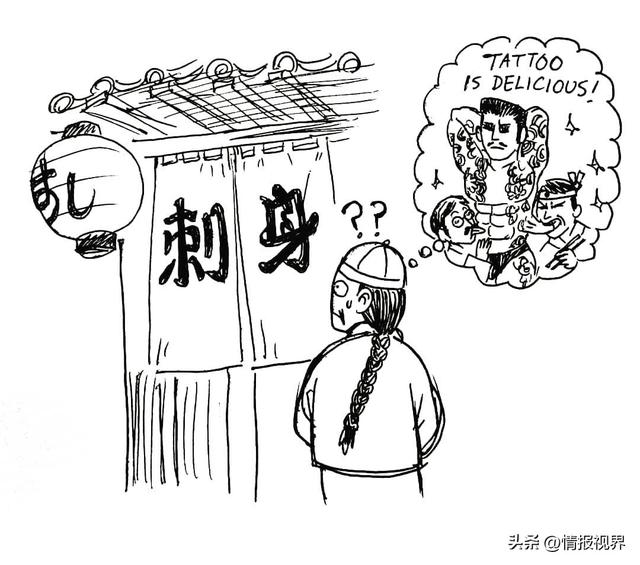
As far as advantages or disadvantages of using or discarding Chinese characters, this question again becomes rather complex. It depends on the language. At one time, Vietnamese was written in Chinese characters. After converting to a modified Roman alphabet under French colonial rule, Vietnam seem to be doing quite well without Chinese characters.
至于使用或丢弃汉字的利弊,这个问题又变得相当复杂。这取决于语言。越南语曾经用汉字书写。在法国殖民统治下,越南改用经过修改的罗马字母后,似乎在没有汉字的情况下也做得很好。

韩国网友的观点
Because we can live better WITHOUT CHINESE CHARACTERS.
因为没有汉字我们可以生活得更好。
I find a lot of questions in Quora asking why Korea or Japan are still using Chinese in our languages. I also read a lot of answers without clear distinction between ancient Chinese that’s integrated in Korean and modern Chinese spoken in China now (Madarin or Cantonese).
我在Quora上发现了很多问题,问为什么韩国和日本仍然在我们的语言中使用中文。我也读了很多答案,没有明确区分融合在韩国的古代汉语和现在在中国说的现代汉语(普通话或粤语)。
I don’t know why they don’t include Vietnamese when vietnamese language has more Chinese words than Korean.
我不知道为什么他们不包括越南语,越南语比韩语有更多的中文单词。
It is clear that we Koreans can use pure Korean (Chinese words translated into Korean that cannot be written Chinese) only. But it’s not efficient. Using vocabularies in Chinese root is more convenient and sometimes shorter in sentences. However, that DOESN’T MEAN that we SHOULD USE CHINESE CHARACTERS. Don’t misunderstand.
很明显,我们韩国人只能使用纯韩语(不能写成中文的汉文翻译成韩文)。但效率并不高。使用汉语词根词汇更方便,有时句子更短。然而,这并不意味着我们应该使用汉字。别误会。
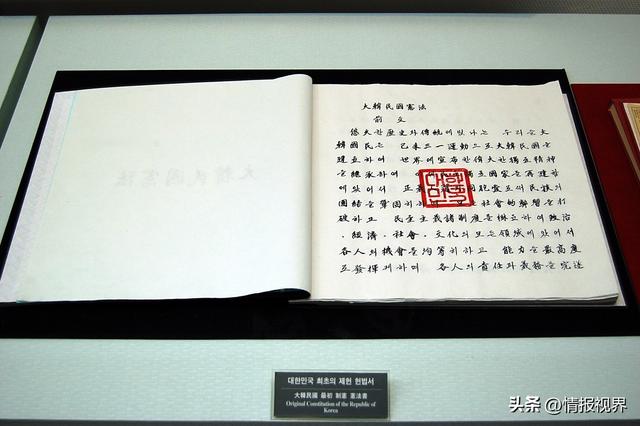
So, it is clear that your last two questions have no value in answering. We have our own way of developing our own language and practice. China has no influence in forming Korean language especially in modern history.
很明显,你最后两个问题没有回答的价值。我们有自己发展语言和实践的方式。特别是在近代史上,中国对韩语的形成没有任何影响。
Chinese in Korean
韩语中的汉字
We have no problem in communicating (read-write-listen-speak) without using Chinese characters as many present Chinese people or foreigners who only learned how to listen and speak have no problem without written Chinese.
我们不用汉字进行交流(读、写、听、说)没有问题,因为许多现在的中国人或只学会听、说的外国人不用书写汉语也没有问题。
Learning Chinese characters take a lot of efforts compared to learning phonetic alphabets. Chinese characters are beautiful, but it is also true that it is one of the most inefficient writing system in the world because you have to learn each and every characters how to draw, how to read, and what they mean.
学习汉字比学习音标要费很多功夫。汉字很漂亮,但它也是世界上最低效的书写系统之一,因为你必须学习每一个汉字如何画,如何读,以及它们的意思。
It is not surprising they invented Simplified Chinese to make it easier to learn. Also to teach how to pronounce it, they adopted Latin characters to pronounce their own language(Pinyin). Even the Latin characters have different pronounciation from original Latin characters are pronounced in languages with Latin roots(for example, Q - pronounced as ‘ch’ in English. X - pronounced as ‘s’, i - has no equivalent sound in any language but in Korean ‘ㅡ’). You have to know how to read and write each characters and how to pronunciate at the same time.
他们发明了简体中文,使其更容易学习,这并不奇怪。为了教他们如何发音,他们采用拉丁字符来发音他们自己的语言(拼音)。即使拉丁字符的发音与原始拉丁字符的发音不同,在具有拉丁词根的语言中(例如,Q -在英语中发音为“ch”。X——读作' s ', i——在其他语言中没有对应的发音,但在韩语中是'ㅡ')。你必须知道如何读和写每个字符,同时如何发音。
I think many people started to focus on communication rather than academic challenge of learning Chinese of which only a few selected people who devoted a lot of their time in learning Chinese characters.
我认为很多人开始关注交流,而不是学习中文的学术挑战,只有少数选择的人投入了大量的时间学习汉字。
When they erased Chinese characters from books and newspapers, more people could easily read and write and the speed of acquisition of information has significantly increased. This helped a lot in developing IT and democracy in Korea. Speading of idea, information and knowledge was faster after we have stopped using Chinese characters in our written language.
当人们从书本和报纸上删除汉字时,更多的人可以轻松地阅读和书写,获取信息的速度也显著提高了。这对韩国信息技术(IT)和民主主义的发展起到了很大的帮助。我们停止使用汉字后,思想、信息和知识的传播速度更快。
Chinese in Japanese
日语中的汉字
I do not comment on why Japanese keep Chinese characters.
But I think Japanese won’t have any problem too if they also give up using Chinese in their writings. Japanese language - Hiragana and Katakana is also a very good and complete writing system I think.
我不评论为什么日本人保留汉字。但我认为,如果日本人也放弃在写作中使用中文,他们也不会有任何问题。日语——平假名和片假名也是一个非常好的和完整的书写系统。
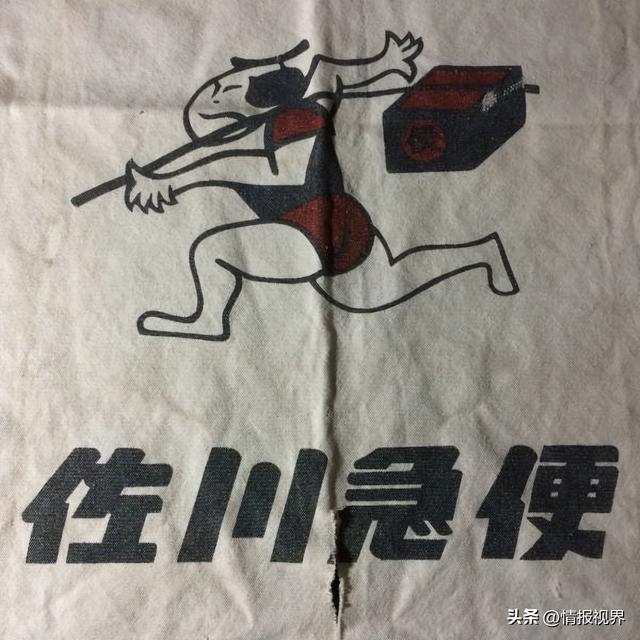
As I repeatedly say in Quora, Chinese used in Korean(ancient or classical Chinese) and modern Chinese(Mandarin or Cantonese) are different. People often misunderstand that we are using Chinese LANGUAGE integrated to Korean. It is not. It is only the philosophy and political idealism that heavily influenced to Korea(especially to Joseon), not Chinese spoken Language. Spoken language of Chinese and Korean are completely different.
正如我在Quora上反复说的,韩语(古文或文言文)和现代汉语(普通话或广东话)中使用的汉语是不同的。人们经常误解我们使用的是融合了韩语的汉语。它不是。对韩国(特别是朝鲜)影响很大的,不是中国的口语,而是哲学和政治理想主义。汉语和韩语的口语是完全不同的。
If you would like to find connection between China and Korea in linguistic background, you must seek classical Chinese philosophy and literatures, not modern Chinese.
如果你想在语言背景上找到中韩之间的联系,你必须寻找中国古典哲学和文学,而不是现代汉语。
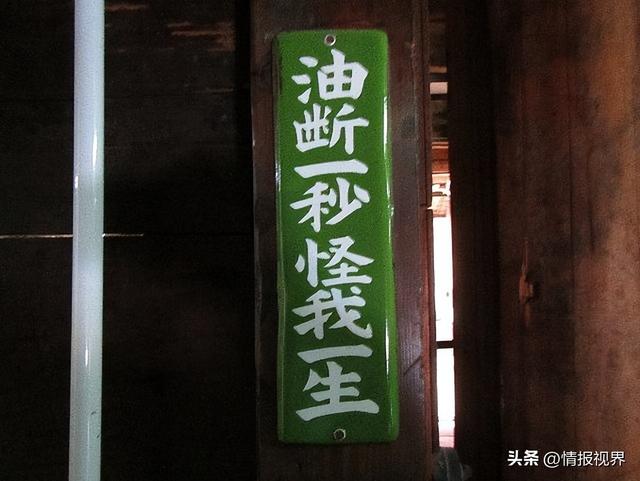
Learning mandarin is the same conscious process for Koreans as we choose to learn English as foreign language study or acquisition. In this sense, there’s no or little influence of Chinese to Korean.
对于韩国人来说,学习普通话是一个有意识的过程,就像我们选择学习英语作为外语学习或习得一样。从这个意义上说,汉语对韩语没有或影响很小。

美国网友的观点
The only reason why Koreans used Hanja (Chinese characters) is because China used to matter a lot to Korea. When China ceased to matter, Hanja went with it. The number one foreign language in Korea, Japan, China is English. That is not because English is great or it is good fit for East Asians - English is dominant in the region because the United States matter great deal to these countries.
韩国人之所以使用汉字,是因为中国曾经对韩国很重要。当中国不再重要时,汉字也随之消失了。在韩国、日本、中国,第一外语是英语。这并不是因为英语很棒或适合东亚人——英语在该地区占主导地位是因为美国对这些国家非常重要。

When you learn Hangeul, everyone would realize that it is superior in every way to Chinese characters in representing spoken Korean. Yet, Hangeul only replaced Hanja after 1950s despite its introduction in 1400’s - why? Because that’s when China really became irrelevant to Koreans.
当你学习韩语的时候,每个人都会意识到它在各个方面都比汉字更好地代表韩语口语。然而,尽管韩文在1400年就已经引入,但它在50年代之后才取代了韩文——为什么?因为从那时起,中国对韩国人来说真的变得无关紧要了。
Korea and PRC didn’t even have diplomatic relationship until 1990’s. There was just no more reason for Koreans to keep Hanja especially when they already had superior script that everyone already knew. If Japan had a modern script handy that didn’t require co-use of Kanji, they would have done the same. It just turns out the social cost of replacing Kanji in Japan was a bit higher than it was in Korea.
韩国和中国直到1990年才建立外交关系。韩国人再也没有理由保留汉字了,特别是他们已经拥有了所有人都知道的优秀文字。如果日本有一个不需要同时使用汉字的现代文字,他们也会这么做的。事实证明,日本替换汉字的社会成本比韩国略高。

马来西亚网友的观点
Korean have up hanja because it can without much confusion. There are so many ways to spell Korean words with pakchim andㅇ alphabet placements to mark difference without changing his the words sound.
韩语中有汉字,因为它可以没有太多的混乱。有很多方法可以拼写韩语单词,用小球和字母位置来标记差异,而不改变他的单词发音。
Japanese, on the other hand, has to many homophonyms that it's impossible to know a words meaning without Kanji.
另一方面,日语有很多同音异义词,没有汉字是不可能知道一个词的意思的。
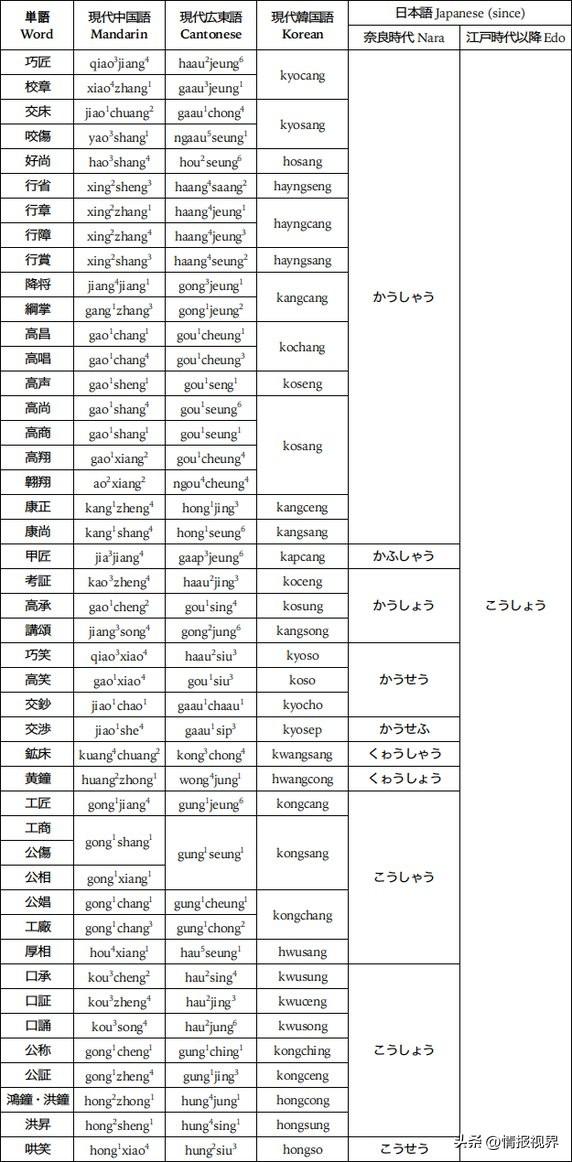
Can a Japanese know what こうしょうrefers to without the kanji? It's impossible because it had 45 completely different meanings with same hiragana.
如果没有汉字,日本人能知道こうしょう是什么意思吗?这是不可能的,因为同样的平假名有45个完全不同的意思。
So Japanese just called eliminate Kanji. It's just not possible.
所以让日本人只消除汉字。这是不可能的。

新加坡华裔的观点
Many Quorans from Koreans and Japanese (Vietnamese too) had answered this question before, not forgetting there are millions of overseas Chinese who also ditch Chinese language for their host country language (English, French, Malay, Thai, Philipino etc).
许多来自韩国和日本(还有越南人)的quora人之前已经回答了这个问题,不要忘记还有数百万海外华人也放弃了汉语,而选择他们的东道国语言(英语、法语、马来语、泰语、菲律宾语等)。
My short answer is there are 4 factors:
我的回答是有4个因素:
National Pride to “de-Chinese” : Koreans had invented their own Alphabetic Characters Hangeul since 15th century by King 世宗。Only after the 1950s Korean War (North Korea) and late 1970s (South Korea) did they manage to replace Hanzi (汉字) by Hangeul.
“去中国化”的民族自豪感:韩国人自15世纪国王世宗发明了他们自己的字母汉字韩文。直到20世纪50年代(朝鲜)和70年代末(韩国),汉字(汉字)才被韩文取代。
Continuity for Practical Reasons: Japanese voted under the post-WW2 American occupation to keep about 1500 - 2000 Hanzi, coexisting with their alphabetic Hiragana and Katakana.
实际原因:二战后美国占领时期,日本人投票保留了1500 - 2000年左右的汉字,与平假名和片假名共存。
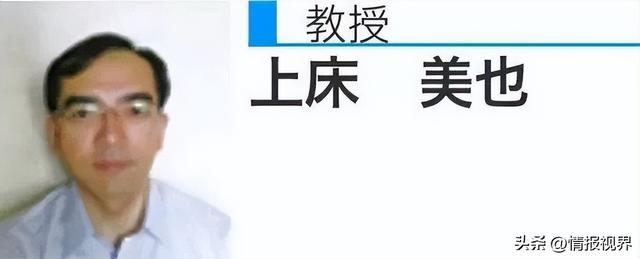
这个名字。。。
Colonial Masters culturally “de-rooted” the colonies: French colonies in Vietnam, English colonies in South-East Asia (Malaysia, Singapore), Japanese in Taiwan (late 19 century Qing dynasty)…
殖民统治者在文化上“铲除”殖民地:法国在越南的殖民地,英国在东南亚的殖民地(马来西亚、新加坡),日本在台湾的殖民地(19世纪末的清朝)……
Naturalisation “归化” in host country: The Chinese diasporas (华侨) in America, Europe, South-Africa, Asia (Japan, Korea, Thailand, Philippine, Indonesia, …) after 2nd generation of immigrants whose locally born children mostly switched to the host country language.
在东道国的入籍“归化”:在美国、欧洲、南非、亚洲(日本、韩国、泰国、菲律宾、印度尼西亚……)第二代移民后,在当地出生的子女大多转向东道国语言的中国人(华侨)。
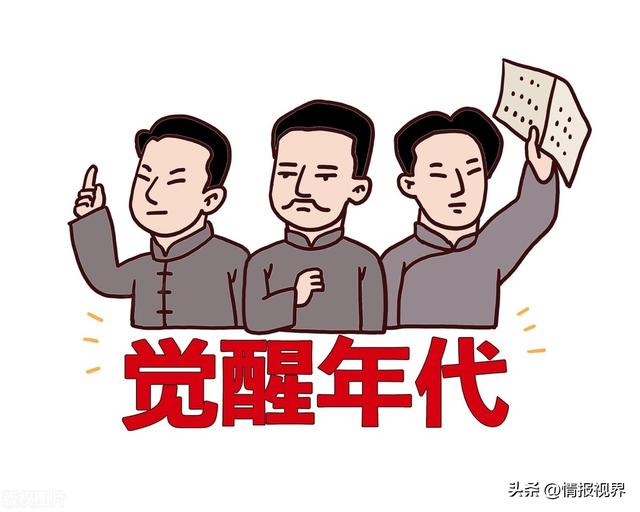
With Chinese economy becoming the 2nd biggest in the world, there is a “中热” (Chinese Fever) all over the world to study Chinese language - for doing business and job opportunity with China. Besides, Chinese language is spoken by 1/5 of world population who now travel everywhere to spend money, it is advantageous for local country merchants to speak Chinese.
随着中国经济成为世界第二大经济体,世界各地出现了“中热”(汉语热)学习汉语——为了在中国做生意和获得工作机会。此外,世界上1/5的人口说汉语,他们现在到处旅游消费,这对当地的商人来说是有利的。
写在最后:汉字表达的也就是文字的意思,学习的成本极高,必须要学会2000个以上字体,才能真正完成日常的阅读能力。当然,韩国将汉字彻底废除,也是有着坏处存在的。一直以来,韩国历史上都是用汉字进行书写与记载的,许多的古建筑物上用到的也都是汉字,因此也就让许多的韩国年轻人们感到疑惑,上面书写的汉字根本无人看得懂,这一处境也是相当尴尬。



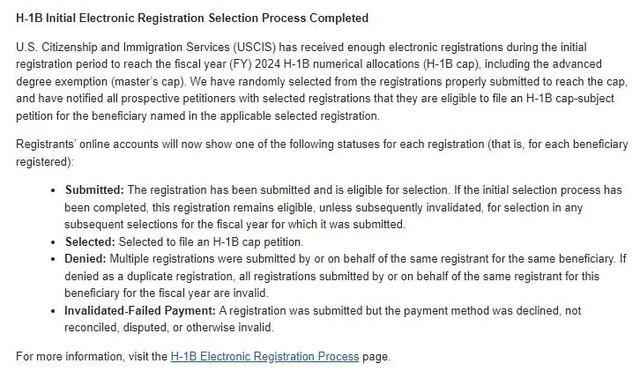

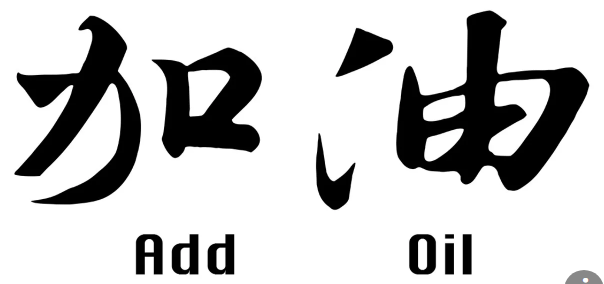













评论